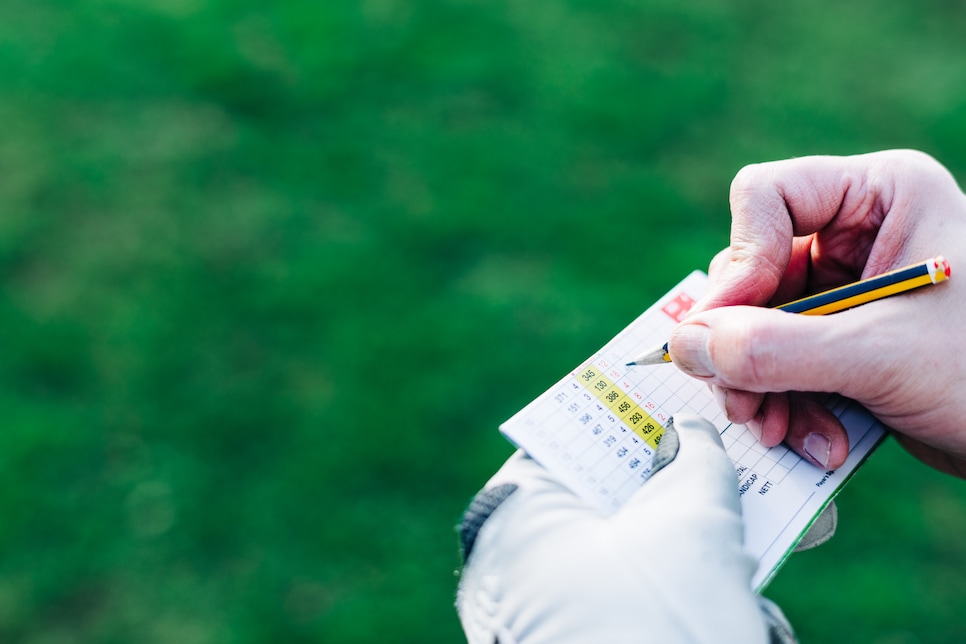When golfers think about improving their handicap and shooting lower scores, they usually think in terms of good shots. More booming drives, mastered iron shots, and birdies overall.
That’s certainly part of it, of course. But the real key isn’t improving the good, it’s managing the bad.
To that end, Arccos data lead and Golf Twitter Hall of Famer Lou Stagner shared a few fascinating stats recently that quickly began making the rounds on social media. They're simple in nature, but hugely important to practice. Simply put, getting good in these catagories is the key to better golf.
(Editor's Note: By the way, thanks to a partnership between Arccos and Golf Digest, you can sign up for a free Arccos trial right here).
1. Don't let the birdies trick you
The first stat is a rather fascinating one: How many more birdies does a scratch golfer make than an 18 handicap? Presumably lots, right? Well, not really.
According to Arccos, as relayed by Lou below, scratch golfers make less than two more birdies per round than 18 handicaps. Where do the other 16 shots come from?
By making fewer bogeys and, most crucially, making big numbers a lot less often...
2. The 60-40 ratio
How many big numbers do scratch golfers make, you ask? Turns out that according to Arccos, scratch golfers avoid anything worse than a bogey in 60 percent of the rounds they play. And when they do have a round with a big number the other 40 percent of the time, they're usually limiting it to just one.
Simply put, big numbers are the biggest drain on your game, and if you want to lower your handicap, limiting them is priority one.
3. Good-to-bad stat

One more interesting stat from the ocean of Arccos data is looking at where those big numbers occur among higher handicaps.
Granted, that the nature of being a higher handicap means blow up homes happen in a variety of different places, but there's actually a notable uptick on the holes immediately following a par or better: 32 percent of the time a 15 handicap (or higher) makes a par or birdie, they make a double or worse. Perhaps they get nervous.
Or perhaps it's the opposite: They get cocky, and play more aggressively — and unforced errors because of it.
Either way, the end result is the same. Big numbers. Learn to avoid them, and your handicap will thank you for it.


